CBG, or cannabigerol, is the most antioxidant and moisturizing of all the cannabinoids
First, the basics: CBG stands for cannabigerol, one of more than 100 cannabinoids found in cannabis and hemp. Cannabinoids are among the “biologically active” compounds in the plant that can have an effect on the human body. This is thanks to our body’s natural endocannabinoid system, which has receptors in all of our major organs, including skin.
You might remember from science class that plants have things like phenols, alkaloids, vitamins, and minerals in them. Cannabinoids are similar compounds. Similar to how zinc oxide is listed as an active ingredient in many sunscreens, CBD and CBG would be on active ingredient lists too — if the FDA required skincare companies to list all active ingredients. But they don’t. We hope someday the FDA recognizes the medicinal properties of cannabinoids.
Will CBG get you high? No. Like CBD, CBG is non-psychoactive. Technically it’s more correct to say it’s non-intoxicating, but we won’t bore you with the minutiae about cannabis absorption through skin here. The important thing to know is CBD and CBG will NOT get you high. PS: when applied topically, even THC won’t get you high, as THC skin permeability doesn’t work without penetration enhancers. But that’s another topic for another blog.
Side note: the plant we call cannabis, marijuana, weed, Mary Jane or pot, as well as the plant we call hemp is all the same plant, just with different levels of THC. Here’s our founder Bridget May’s quick explanation on how both are Cannabis sativa plants.
Okay, that’s what CBG is. Now for what CBG does.
In a research study published last year, scientists tested seven cannabinoids from the Cannabis sativa plant for antioxidant activity: CBG, CBD, THC, CBN, CBGA, CBDA and THCA.*
The scientists who conducted the study concluded that the results:
“…prove that all the examined cannabinoids exhibit antioxidant activity manifested in their ability to scavenge free radicals, to prevent the oxidation process, and to reduce metal ions.”
In other words, cannabinoids help protect the skin from the causes of premature aging (free radicals, oxidation, and toxic metal ions). Whether the cannabinoids come from cannabis or hemp.
What jumped out at us first from the study? Researchers proved that CBG has the most antioxidant properties of all the cannabinoids tested. We expected crowd favorite CBD, which scientists proved long ago as a strong antioxidant, to come out on top. The results also show that CBG, CBD and even THC (!) exhibit stronger antioxidant activity compared to vitamins E, A and C that we all typically think of skincare powerhouses.
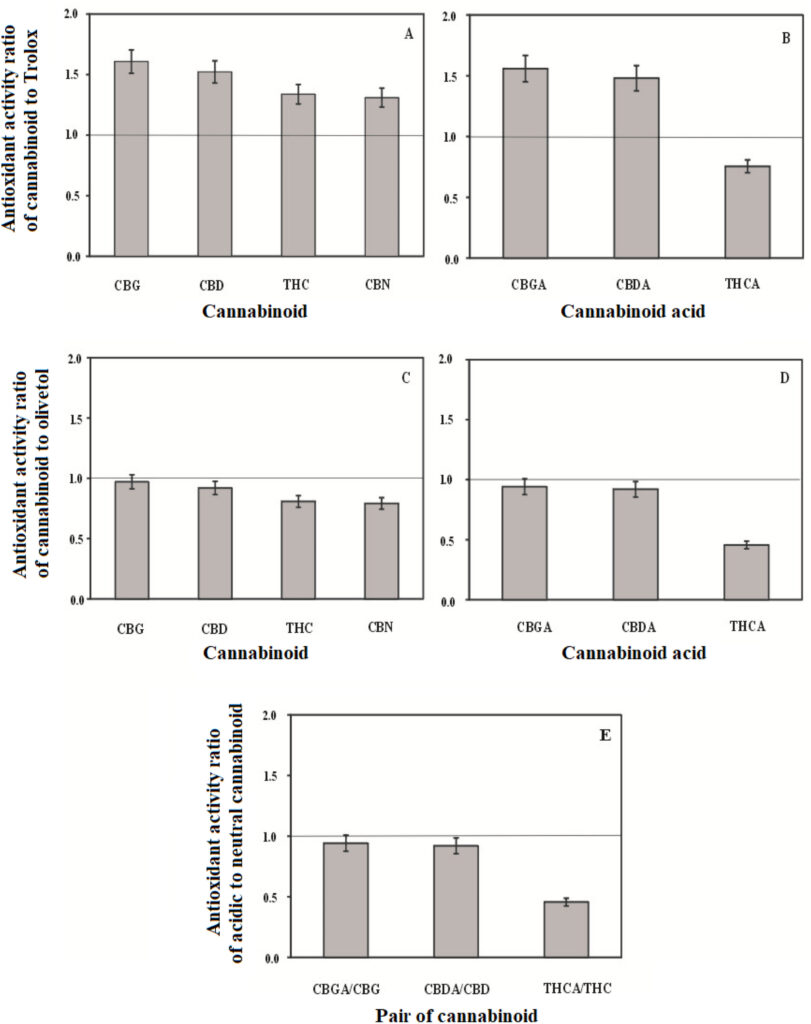
There are new studies coming out on CBG that prove it also has beneficial antibacterial, anti-microbial, anti-inflammatory, and neuroprotective properties. These properties make CBG an excellent candidate for addressing psoriasis, eczema, rosacea, acne and other challenging skin issues, as CBD and THC are already proving to be.
Footnotes follow at the end of this article with links to these studies if you’re interested in diving deeper.
*All the types of cannabinoids
There are hundreds of minor and major cannabinoids. We spared you the mouthful it requires to list out all of the cannabinoid names above, but here they are for those of you keeping track:
- CBG = cannabigerol
- CBD = cannabidiol
- THC = Δ9-tetrahydrocannabinol
- CBN = cannabinol
- CBGA = cannabigerolic acid
- CBDA = cannabinolic acid
- THCA = Δ9-tetrahydrocannabinolic acid
We should make a video next on how to pronounce them all!
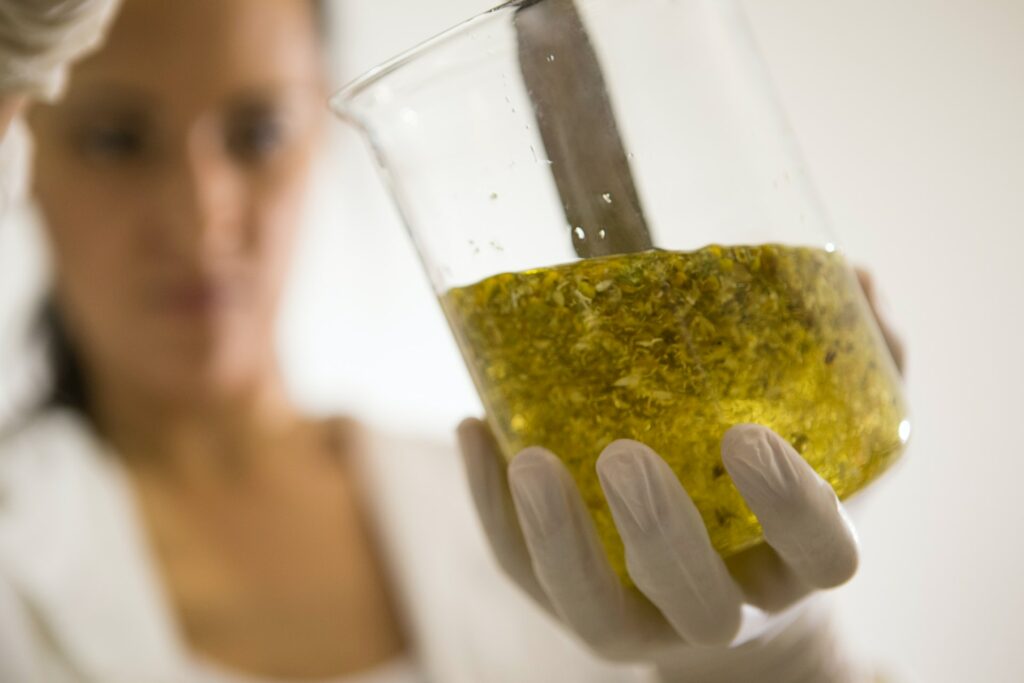
Why CBG is good for your skin
As the most antioxidizing of all the cannabinoids and vitamins studied to date, CBG is an ideal ingredient for your skin. The fact that scientists have also now proven CBG to be antibacterial, anti-inflammatory and more to boot just makes it all the more ideal for skin, whether your skin is bone dry or flaring with acne.
On the quest to make the best CBG moisturizer
After learning all of the above, Bridget, our founder and in-house formulator, decided to develop a new cannabis cream for dry skin with it. É voilà, our new cannabis face cream, the Quench Moisturizer was born. Starring 350 milligrams of potent CBG and CBD for those magical antioxidant powers, Quench also has many other plant actives. High gamma-linolenic acid (GLA) from borage seed oil, über hydrating mango butter, hyaluronic acid, rosehip seed oil, everlasting flower, and hemp seed oil. Hemp seed oil is different from CBD and CBG; it comes from a different part of the hemp plant — the hemp seeds, also called hemp hearts. Hemp seed oil is an amazing ingredient, but contrary to popular belief, it does not contain CBD, CBG or any other cannabinoids.
Quench moisturizing cannabis-infused skin cream is luscious and restorative, packed with plant actives, antioxidants, vitamins and minerals. It is the most decadent and natural way to fight oxidative stress, promote skin barrier function, and stay hydrated all year long.
Award-winning cannabis skincare
We know we’re biased, but you don’t have to take our word for it. Quench won BEST MOISTURIZER in the 2021 clean beauty awards hosted by the Think Dirty app and voted on by its 4.5 million users in 33 countries. The app tracks over 500,000 products, and users have scanned products more than 30 million times. No wonder Bustle named Think Dirty the “holy grail of clean beauty apps”!
An independent lab tests and proves clean everything we make, including Quench. And Quench, like all of our products, is made with organic, vegan, cruelty-free and reef-safe ingredients — a delicious cherry on top.
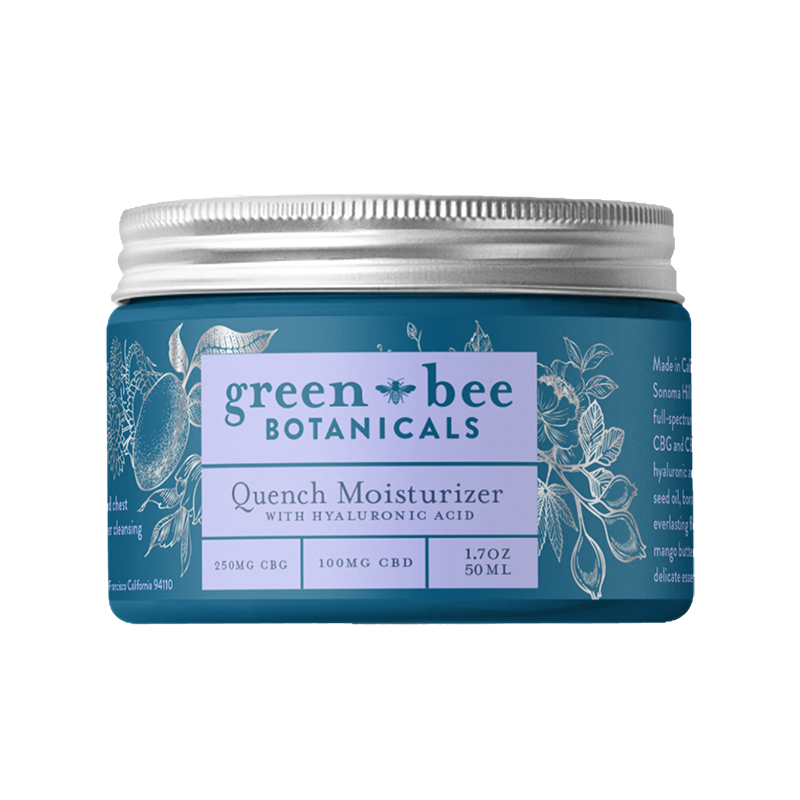
Quench Moisturizer
Packed with antioxidants, vitamins and minerals, ultra-hydrating Quench Moisturizer combines rare CBG — the most antioxidant of all cannabinoids — with potent CBD, and blends them with high molecular weight hyaluronic acid, rosehip seed oil, everlasting flower, borage and mango butter for healthy, happy skin from within.
Further reading for science lovers
For a deeper dive into the benefits of CBG, here are some more research studies to read:
- CBG, CBD, Δ9-THC, CBN, CBGA, CBDA and Δ9-THCA as antioxidant agents and their intervention abilities in antioxidant action
- Cannabinoids inhibit human keratinocyte proliferation through a non-CB1/CB2 mechanism and have a potential therapeutic value in the treatment of psoriasis
- CBG May Help Improve People’s Skin Health Better Than THC or CBD
- What is CBG? The Minor Cannabinoid with Major Potential, Explained
- Antibacterial cannabinoids from Cannabis sativa: a structure-activity study
- Differential effectiveness of selected non-psychotropic phytocannabinoids on human sebocyte functions implicates their introduction in dry/seborrhoeic skin and acne treatment

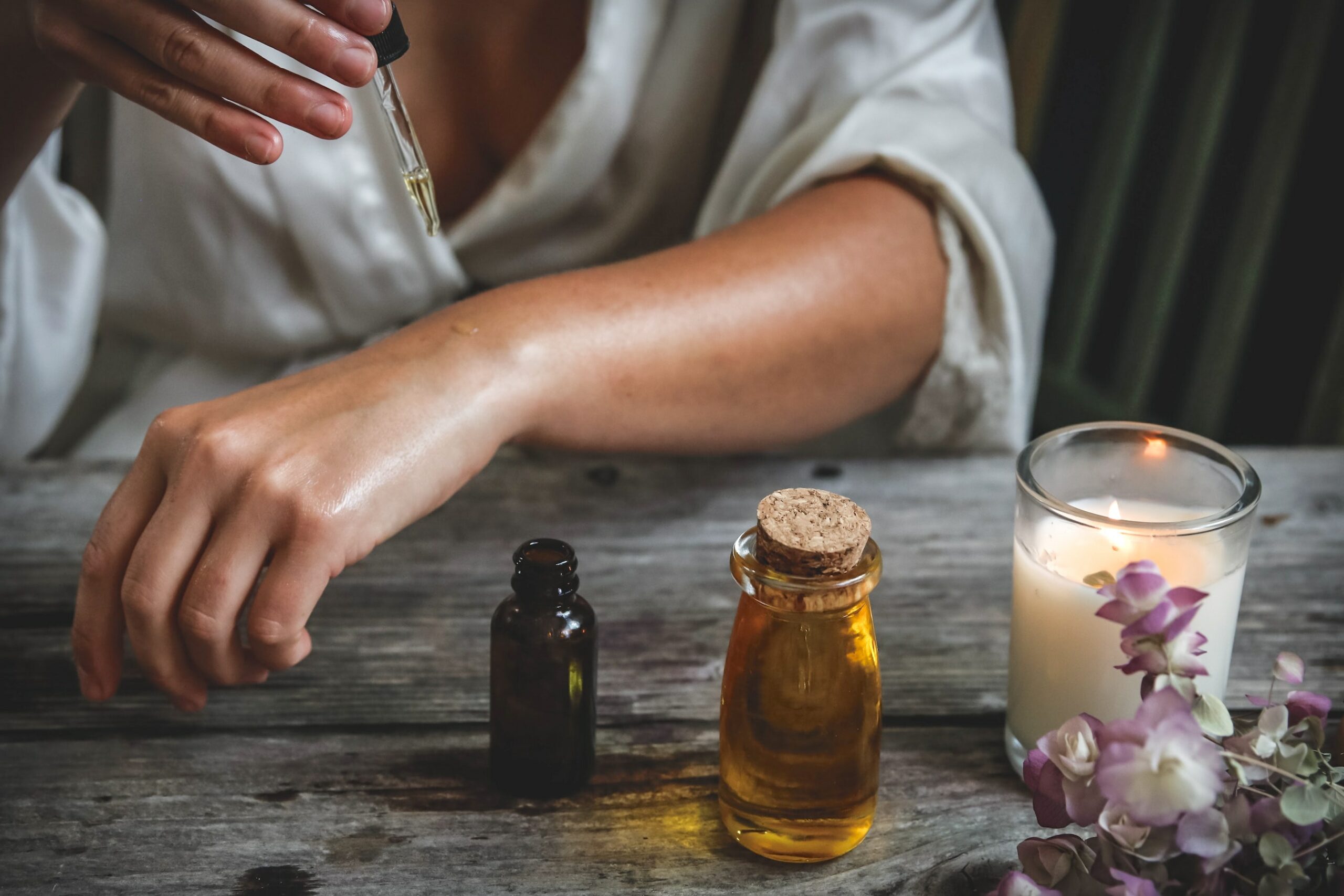

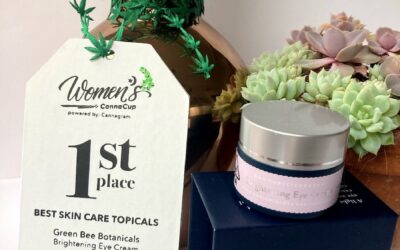
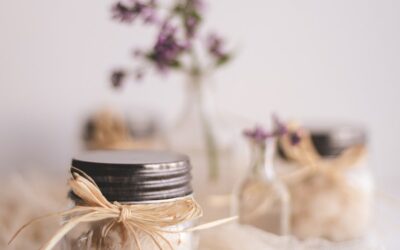
0 Comments